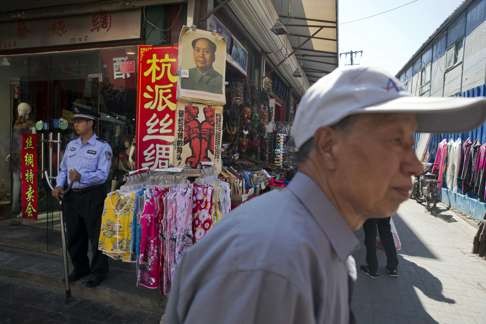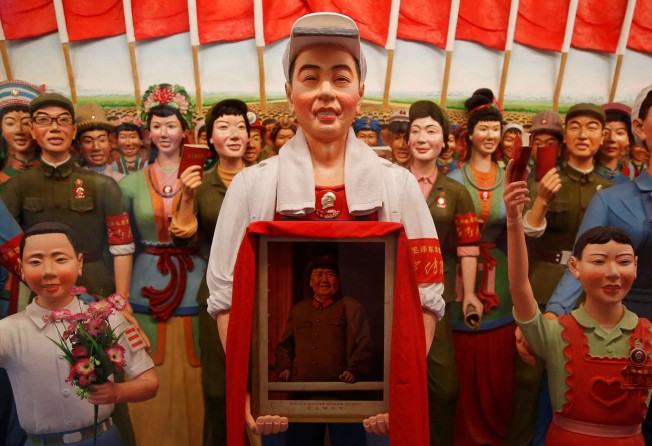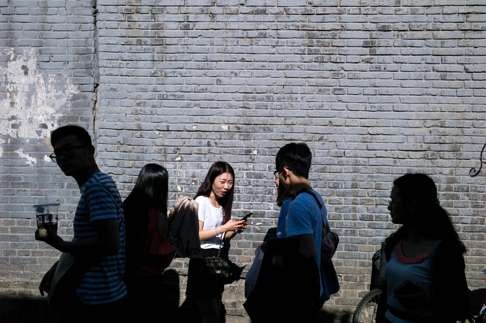
China is in the grip of a cultural revolution (but it has nothing to do with Mao)
Niall Ferguson says for all the dire warnings about a revival of Cultural Revolution madness in today’s China, in truth, people are more preoccupied with post-reform changes

Some weeks it is hard to know what to worry about most. Terrorist attacks by Islamic extremists? Mass migration triggered by war and misery across the Muslim world? Or how about the political reactions to these threats, from Donald Trump to Brexit?
And yet all this could easily pale into insignificance if the world’s most populous country were to repeat its own history. Any crisis in China has the potential to affect a staggering number of people. So when China watchers worry, we all need to pay attention. The Economist recently used the headline “Mao, diluted” to characterise the personality cult around President Xi Jinping ( 習近平 ). Others go further. “Not since the 1970s when Mao still reigned and the Cultural Revolution still raged,” wrote Orville Schell in The New York Review of Books last month, “has the Chinese leadership been so possessed by Maoist nostalgia.”
Having just spent two weeks in Beijing, however, I am relieved to report that I saw scarcely any sign of “Maostalgia”. There is a kind of cultural revolution going on, no question. But it is not one that looks back with any fondness to the craziness of the 1960s.
Of course, I can see why people might worry. Since Xi became general secretary of the Communist Party in 2012, there have been numerous nods to the bad old days. A year after coming to power, he approved Document No 9, which bans the discussion of seven taboo subjects in universities, including Western democratic ideas. Shortly before I arrived in Beijing, there was a concert in the Great Hall of the People that featured the song Sailing the Seas Depends on the Helmsman – a Cultural Revolution classic.

Yet no one I met in Beijing showed the remotest sign of wanting to revisit that era. Quite the reverse. And no wonder. Over roughly 10 years of insanity, between 1.5 and 2 million people lost their lives.
Last week, I sipped tea with an elderly woman who had been subjected to the signature torture of the Red Guards – to stand for hours with her knees bent and her arms stretched behind her. Like everyone who remembers those dark days, she could think of nothing worse than a new Cultural Revolution.
Could Xi himself really think otherwise? It seems implausible. Since 1981, the official line has been that the Cultural Revolution was “70 per cent successful and 30 per cent a failure”. This month, the People’s Daily went further, calling it “a mistake ... that cannot and will not be allowed to repeat itself”.
For all these reasons, I doubt very much we shall ever see editorials in the People’s Daily like the one published on June 1, 1966, under the headline “Sweep Away All Monsters and Demons!” Much more indicative of the real revolution under way in China today was the front-page story just over two weeks ago, which quoted an “authoritative insider” arguing for “supply-side structural reform” of the economy.

This article caused great excitement in Beijing as a signal that Xi is backing tougher action to deal with the excessive debts and industrial overcapacity that are the legacy of the government’s post-2008 economic stimulus. But to me its significance was as much cultural as economic. Warning against “high leverage” and arguing that China faced an “L-shaped” rather than “U-shaped” or “V-shaped” recovery, the authoritative insider sounded remarkably like one of his counterparts in the West.
China’s new cultural revolution has nothing to do with Mao. It is the revolution that follows logically from the economic reforms that became possible only after his death. Since the late 1970s, China’s economy has surged from producing just under 2 per cent of global output to producing just under 20 per cent. Among the unintended consequence of this astounding growth are a host of Western-style problems: real estate bubbles, “shadow” banks and a mountain of debt.
The real cultural revolution, in short, is that the leader of the Chinese Communist Party needs to grapple with pretty much the same problems as his Western counterparts. And my bet is that Xi understands better than most Western China watchers that the worst possible remedy would be to resort to “Maostalgia” – and risk rousing the “monsters and demons” of 50 years ago.
Niall Ferguson is Laurence A Tisch professor of history at Harvard and a senior fellow of the Hoover Institution, Stanford